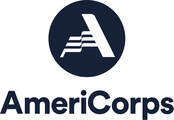|
By David E. Rotenizer, Raleigh County Extension Agent, West Virginia State University (WVSU)
“We are prone to speak of the resources of this country as inexhaustible; this is not so” – Theodore Roosevelt had it right when he crafted these words last century. These words would equally fit the legacy for West Virginia’s long and proud coal heritage. In recent months, the Raleigh County WVSU Extension Program has launched community development activity, under the banner of historic preservation, in the western portion of the county. This is an area which encompasses much of what has been known historically as the Winding Gulf Coalfield, long recognized for its “smokeless coal” – a high burning fuel with little waste byproduct. Active mining began in the coalfield in the wee years of the 20th century with a peak toward mid-century. While an accurate count has not been made, the region once hosted approximately 50 coal communities. It was boasted that in the 1950s – the 27-mile radius of the Town of Sophia was home to some 350,000 people! Flash forward to 2015. Western Raleigh County, like many areas in southern West Virginia, is in sharp contrast to its heyday of just a few short years ago. The impact of deindustrialization has had a profound impact on the cultural and physical landscapes. Now that the coal dust has literally started to settle, a dialogue has begun among the communities toward the question, “What next?” Economic and community restructuring is beginning to take hold. Sadly, many of elements of the once ubiquitous coal community landscape are disappearing. The National Coal Heritage Area (NCHA) has maintained an active presence in the region through the introduction and development of heritage tourism and historic preservation activities to help stem losses. To supplement the on-going NCHA efforts, the community development initiative through partnership with the New River Gorge Regional Development Authority, extended services into the region through a number of means. In August, the final stop of a five-month, four-county, month-long traveling exhibit tour of the New River Gorge region concluded with Raleigh County. PAWV’s traveling exhibit, Preserving West Virginia: Saving Communities, highlights West Virginia Endangered Properties and was made possible through grant funding from the West Virginia Humanities Council. In conjunction with the traveling exhibit display, each month PAWV staff participated in special programming that included an educational workshop, unique to each community, and the following day, PAWV staff toured the county’s historic resources. Special programming funds were made available with a grant from the National Coal Heritage Area. The Raleigh County tour was conducted within the Winding Gulf, with the workshop and exhibit held at the Town of Sophia – “Gateway to the Winding Gulf.” An exciting outcome of the Winding Gulf tour was the identification of a threatened historic structure. The community of Helen is one of the best preserved surviving coal communities of the Winding Gulf. It was learned that a circa 1920s boarding house was slated for demolition through the county’s abandoned and dilapidated properties program. The verdict for the structure’s fate was based on its aesthetic value – the property owner had been unable to properly maintain the property and its tax liabilities. The property owner had expressed an interest in transferring the property to a community non-profit organization. Helen has the potential to qualify as a national historic district, and the building would be a contributing anchor toward that designation. The county extension office, PAWV, and the NCHA shared resources and communicated with We GROw (Winding Gulf Preservation Organization) – the community organization for Helen – the county’s administrator, engineer, and attorney to develop a plan for saving the property. To support the effort, Lynn Stasick, PAWV Statewide Field Services Representative, conducted a Prioritized Narrative Needs Assessment. This document concluded the property was “…not only savable, but should be saved….as the Winding Gulf….is in a constant state of decline regarding its historic resources.” The study was the final push needed to save the structure. Michael Burk, a Preserve WV AmeriCorps member assigned to NCHA, assisted the project with photo documentation. Recently, the Raleigh County Commission unanimously approved to support transferring the structure to We GROw, pay owed back taxes, and provide funding to secure the property. This action was precedent setting – the first time the county has removed a property from a list slated for demolition. Recent activities have included outreach to various communities and towns within the Winding Gulf. A highlight component includes the services of a Preserve WV AmeriCorps member who will travel the Winding Gulf collecting oral histories for the narrative reflecting the life and times of coal communities, as well as assisting with historic preservation needs. Tiffany Rakotz, recently began her one-year service commitment, and Tiffany’s position is possible with support from the National Coal Heritage Area. Tiffany will be interviewing a wide range of residents in the Winding Gulf. The project focuses on people of all ages with the goal of capturing the many voices and experiences of the region and how they – directly or indirectly – were related to the coal industry. This is more of a community development project, than a history project – it is not writing the history of the Winding Gulf Coalfield. The oral history project is based on a community development model that rural community development should be built on a foundation reflecting community pride and heritage. Tiffany is coordinating a cleanup for the boarding house in Helen, as well as developing plans for the architectural moth-balling of the structure so it can be secured and protected until long range plans are established. Nicole Marrocco, PAWV’s Preserve WV AmeriCorps, is assisting the cleanup project on a statewide level by helping to coordinate material needs and volunteers. This unique project has become a model for other counties around the state, and it has been a wide success with plans to build on programming for 2015. Stay tuned for information from PAWV about workshops being planned in the New River region. Comments are closed.
|
News and NotesCategories
All
Archives
May 2024
Subscribe to our mailing list to receive e-news updates on historic preservation news and events in West Virginia.
|
Get Involved |
Programs |
Contact UsPreservation Alliance of West Virginia
421 Davis Avenue, #4 | Elkins, WV 26241 Email: [email protected] Phone: 304-345-6005 |
Organizational Partners:
© COPYRIGHT 2022 - PRESERVATION ALLIANCE OF WEST VIRGINIA. ALL RIGHTS RESERVED.

 RSS Feed
RSS Feed



